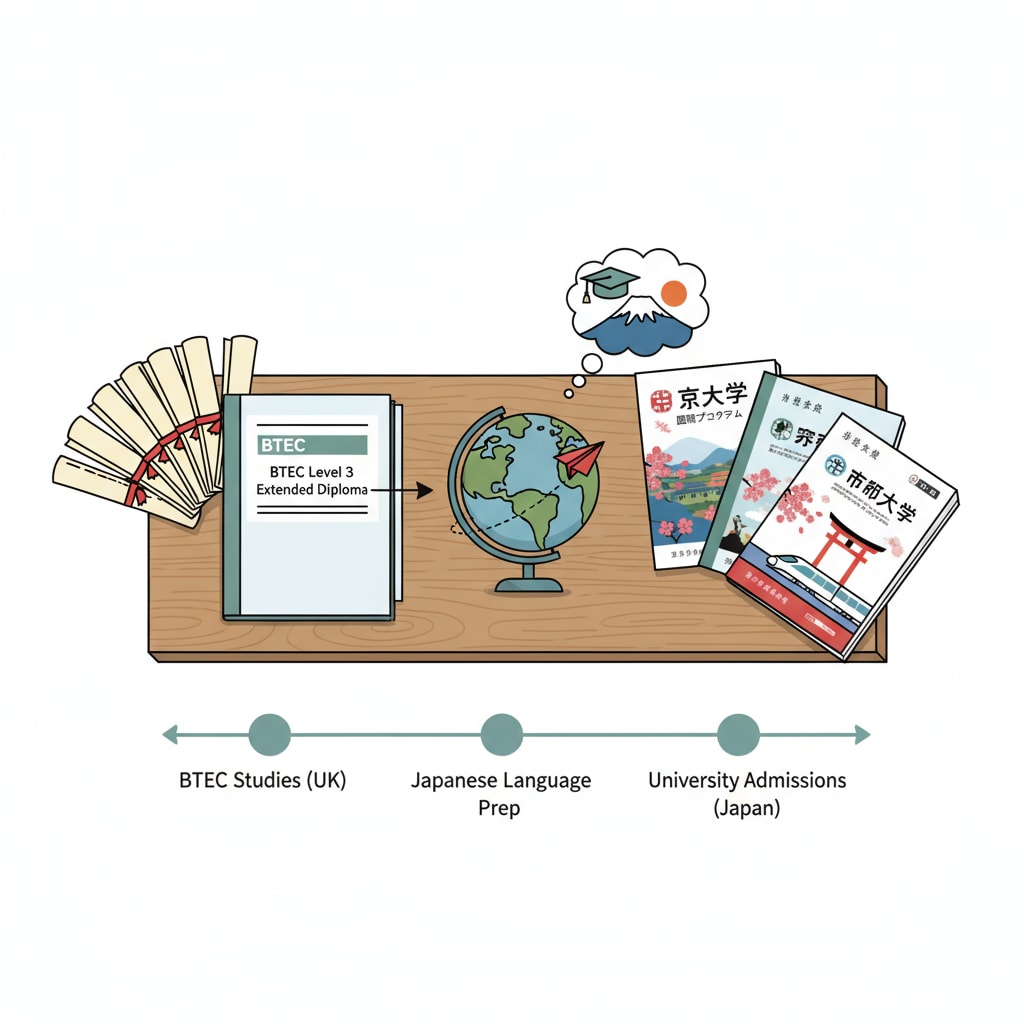Japanese study abroad, A-Level requirements, and BTEC qualifications are topics of great interest among students aspiring to pursue higher education in Japan. In recent years, the idea of using BTEC qualifications to gain entry into Japanese universities has emerged as a potential alternative to the traditional A-Level route. This article aims to shed light on this topic, exploring the possibilities and difficulties associated with applying to Japanese universities with a BTEC Business Level 3 qualification.
The Landscape of Japanese University Admissions
Japanese universities have a unique admissions process. Generally, they look for a combination of academic achievements, language proficiency, and sometimes, extracurricular activities. Traditionally, students from international backgrounds often rely on qualifications like A-Levels to prove their academic capabilities. However, as the international student population in Japan grows, there is a growing recognition of the need to consider a wider range of international qualifications, including BTEC.

Understanding BTEC Qualifications
BTEC (Business and Technology Education Council) qualifications are well – regarded in the UK and many other countries. The BTEC Level 3 in Business is equivalent to A – Levels in terms of academic level. It offers a practical and industry – relevant curriculum that focuses on developing skills such as business management, marketing, and finance. For students interested in business – related fields in Japanese universities, a BTEC Business qualification can be a valuable asset. However, the key question is whether Japanese universities will recognize and accept it as an alternative to A – Levels.
Recognition of BTEC by Japanese Universities
Currently, the recognition of BTEC qualifications by Japanese universities varies. Some institutions are more open – minded and have started to evaluate BTEC qualifications on a case – by – case basis. These universities understand the value of the practical skills and knowledge that BTEC students bring. On the other hand, some traditional universities may still be more accustomed to A – Level qualifications. This lack of uniform recognition can be a significant challenge for students with BTEC qualifications. According to Japan Student Services Organization, international students need to carefully research each university’s admissions requirements.

Application Strategies for BTEC Holders
First, students should communicate directly with the admissions offices of the Japanese universities they are interested in. Explain the nature of their BTEC qualifications, the courses they have completed, and their career goals. Second, obtaining a strong letter of recommendation from a BTEC instructor can highlight the student’s academic achievements and potential. Additionally, demonstrating proficiency in the Japanese language, either through JLPT (Japanese Language Proficiency Test) or other recognized language tests, can strengthen the application. As the Ministry of Education, Culture, Sports, Science and Technology in Japan emphasizes, language skills are crucial for international students.
In conclusion, while there are challenges in using BTEC qualifications to meet the A – Level requirements for Japanese university admissions, it is not an impossible task. With careful research, effective communication, and a strong application strategy, students with BTEC Business Level 3 qualifications can open the doors to Japanese higher education. This alternative route offers new opportunities for those who wish to study in Japan and can contribute to the growing diversity of the international student body in the country.
Readability guidance: The article uses short paragraphs and lists to summarize key points. For example, under the “Application Strategies for BTEC Holders” section, a list of strategies is provided. The passive语态 is kept to a minimum, and long sentences are used sparingly. Transition words such as “however”, “on the other hand”, and “additionally” are used throughout the article to enhance readability.


